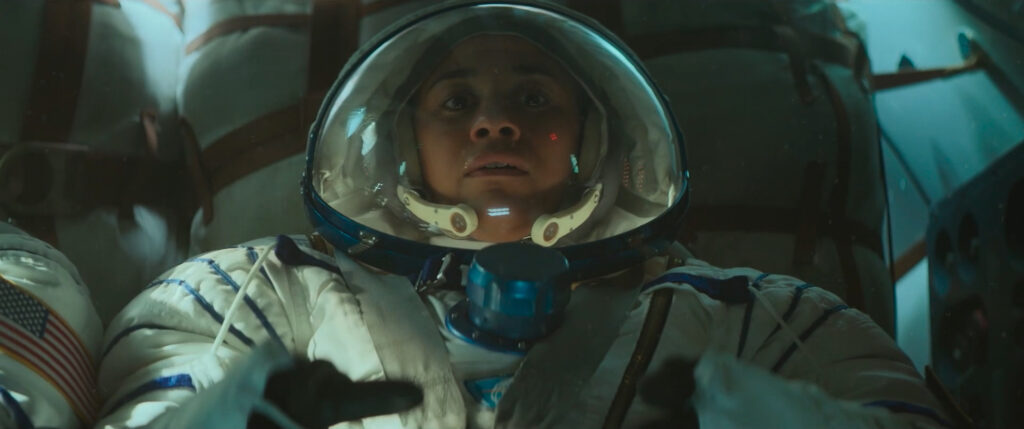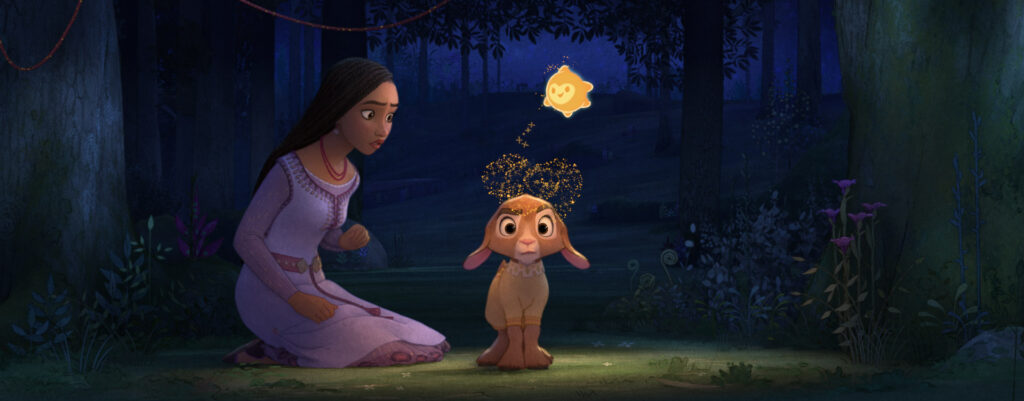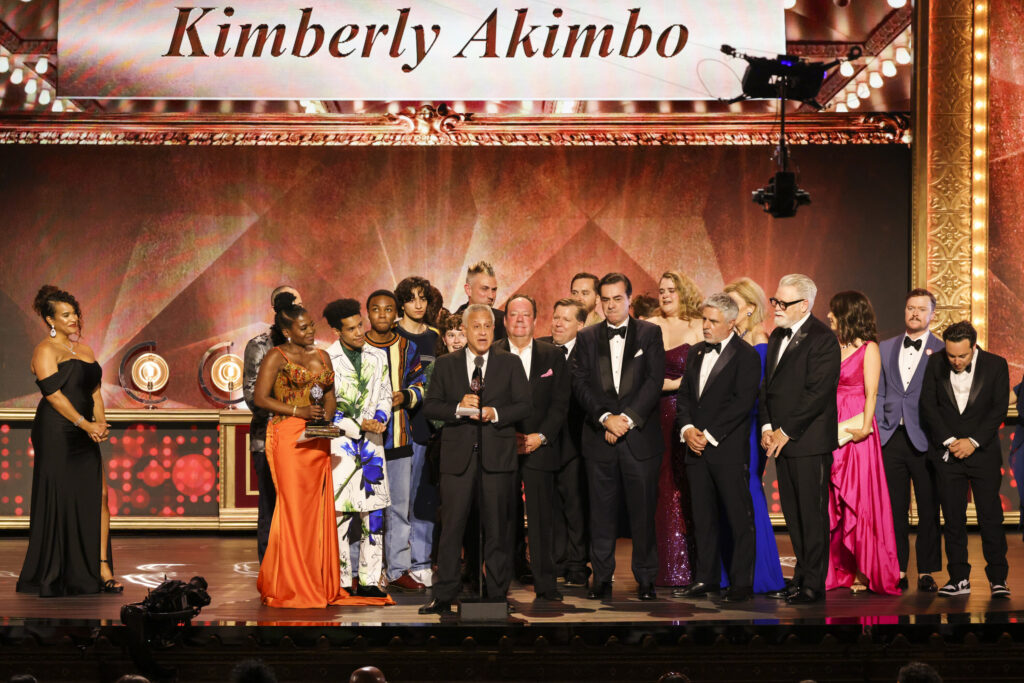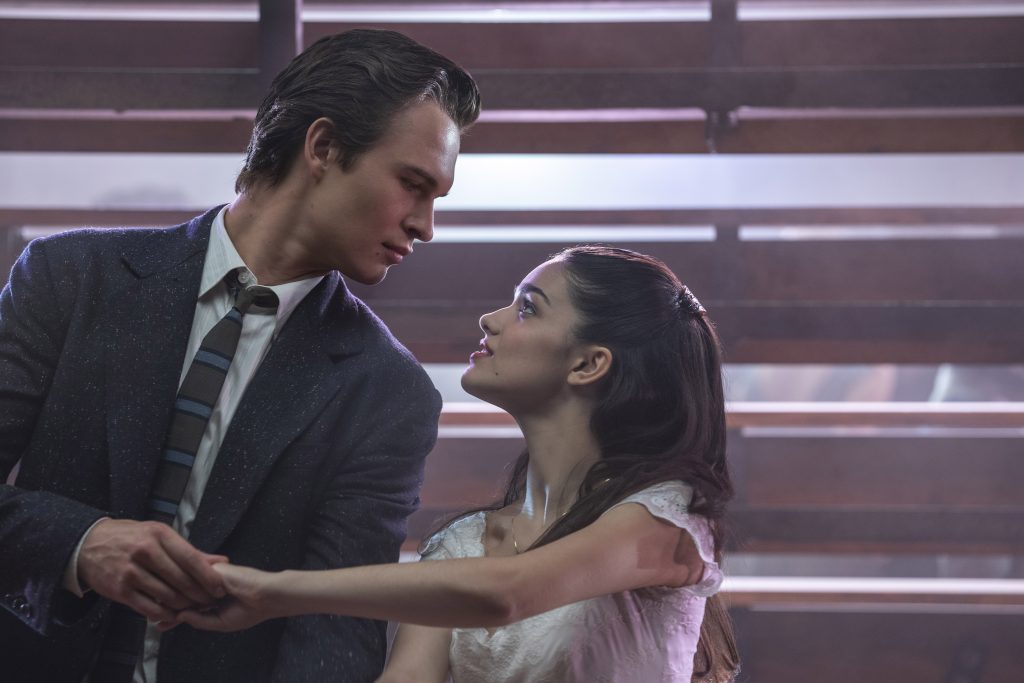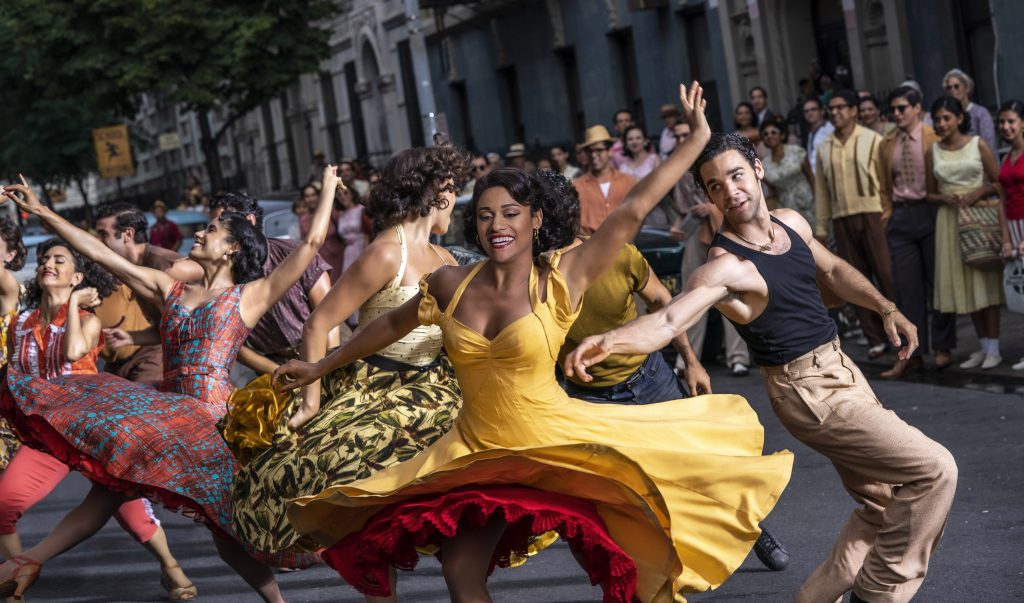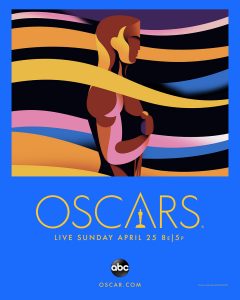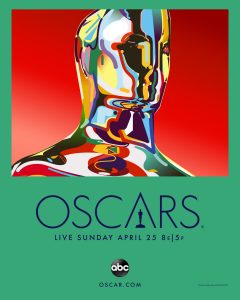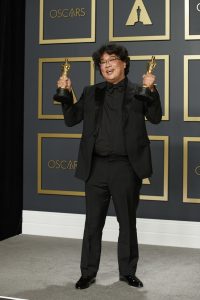January 31, 2024
by Carla Hay
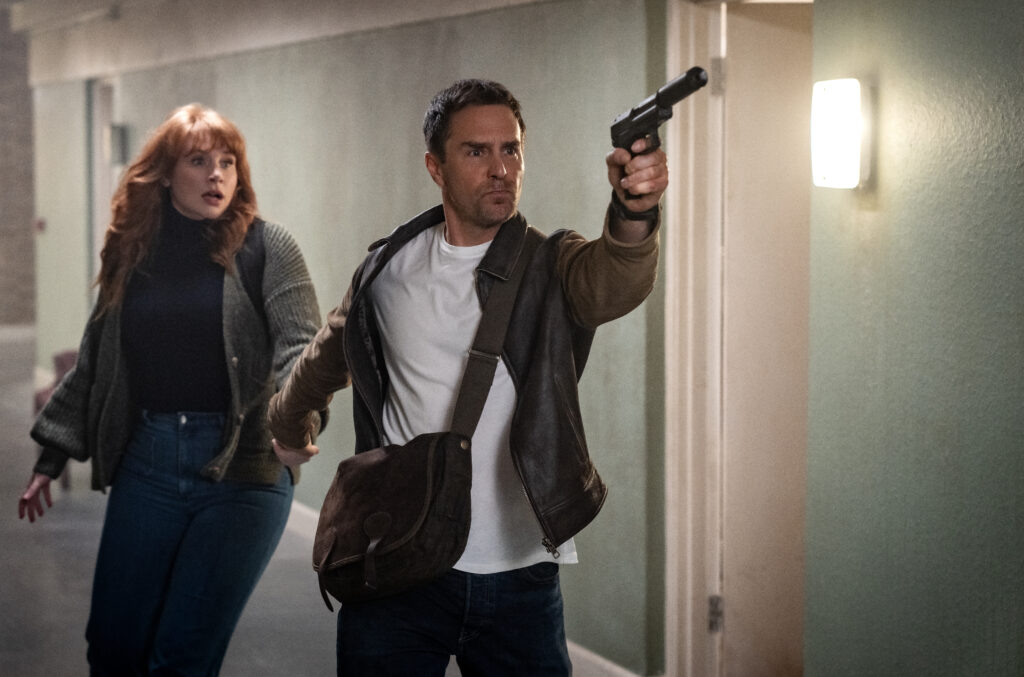
Directed by Matthew Vaughn
Culture Representation: Taking place in the United States, Europe, and Asia, the action film “Argylle” features a predominantly white cast of characters (with a few African Americans, Latinos, Asians and one multiracial person) representing the working-class, middle-class, wealthy and the criminal underground.
Culture Clash: A famous American book author, who has written a series of novels about a British spy named Argylle, goes on the run with a real spy, who has told her that she’s the target of a criminal spy group.
Culture Audience: “Argylle” will appeal primarily to people who are fans of the movie’s headliners, filmmaker Matthew Vaughn, and action movies that have more style than substance.
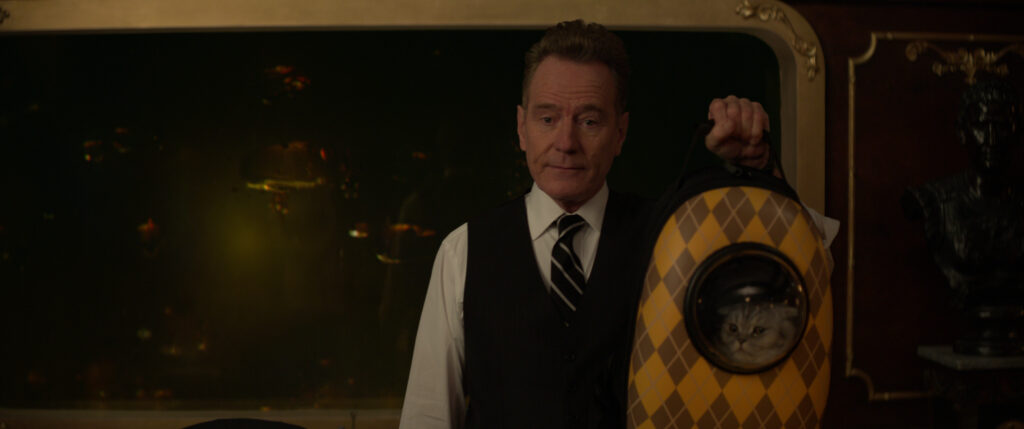
“Argylle” is an incoherent, bloated mess filled with stupid plot twists, awful dialogue, and a gimmicky cat that looks fake for most of the movie. Henry Cavill is not the main star, even though he gets top billing. “Argylle” is mostly Sam Rockwell acting smug and Bryce Dallas Howard acting terrified. The trailers for “Argylle” are grossly misleading, in terms of certain characters being misrepresented as being more important and having more screen time than what’s actually in the movie.
Directed by Matthew Vaughn and written by Jason Fuchs, “Argylle” is yet another big-budget, globe-trotting spy movie with a flimsy plot that’s just an excuse for filmmakers to overspend on visual effects, lavish locations, and salaries for celebrity stunt casting for cast members who are barely in the movie. “Argylle” has so much idiocy and the worst spy adventure clichés, it’s like the filmmakers took the trash ideas from other spy movies and threw them into the junkpile that is “Argylle.” And with an overly long total running time of 139 minutes (which drags the movie down even further into irritating depths), “Argylle” is like garbage with stench that lingers and gets worse the longer it sticks around.
The central characters of “Argylle” are reclusive novelist Elly Conway (played by Howard) and sarcastic spy Aidan Wild (played by Rockwell), who go on the run from a criminal group of spies called The Division. The opening scenes from “Argylle” are mostly revealed in the movie’s trailers. Elly has a best-selling book series about a dashing and handsome British spy named Argylle (played by Cavill), who is obviously a ripoff of James Bond. Elly has an active imagination where she sometimes envisions Argylle and her other book characters coming to life in front of her.
Argylle’s spy colleagues are his muscular best friend/right-hand man Wyatt (played by John Cena), who does a lot of the work requiring the most physical strength; androgynous field tech Keira (played by Ariana DeBose), an expert strategist who’s often needed to get Argylle and Wyatt out of trouble; and Fowler (played by Richard E. Grant), a senior member of Argylle’s Washington, D.C.-based spy group. Argylle’s chief nemesis is a spy named Lagrange (played by Dua Lipa), who uses seduction and charm to get what she wants. All of these characters from Elly’s “Argylle” novels are not in the movie as much as viewers might think, based on the way the “Argylle” movie was marketed. Lipa’s screen time is barely 10 minutes, with her entire character arc show already shown in the “Argylle” trailers. Grant gets even less screen time.
Elly has just finished her fifth “Argylle” book, which ends on a cliffhanger. (It has something to do with Argylle going to London and whether or not he gets a secret file.) Elly’s meddling and opinionated mother Ruth (played by Catherine O’Hara) reads Elly’s manuscripts and is quick to give criticism. Ruth says that the book should not end on a cliffhanger and tells Elly that the book needs a better, more definitive ending.
Elly, who is very insecure and sensitive, has these doubts swirling in her head when she goes to a personal appearance at a bookstore in Denver, where she answers questions from the audience. She denies speculation that she is a spy in real life, just like spy novelists Ian Fleming or John le Carré actually had experiences working in espionage. When a young man in the audience asks Elly out on a date, she lies and says she already has a date.
Elly’s “date” is really spending time at home with her beloved cat Alfie, a gray-and-white Scottish Fold, who is her constant companion. (In real life, the cat that plays Alfie is named Chip, and he is owned by Claudia Vaughn, Matthew Vaughn’s wife, who is better known by her previous name and profession: supermodel Claudia Schiffer.) Elly is a stereotypical “cat lady” bachelorette, who would rather spend time with her cat than with other people. Elly lives in seclusion in a remote house in an unnamed city in the United States.
Elly has a fear of flying in planes, so she takes other transportation for long-distance trips. On a train ride home after her book appearance, a scruffy-looking and talkative stranger sits in the seat facing her. Elly doesn’t really want him to sit near her, but he ignores her attempt to get him to sit somewhere else. He happens to be reading Elly’s latest “Argylle” book, which he says he’s enjoying. It isn’t long before the stranger, who later introduces himself as Aidan Wild (played by Rockwell), tells Elly that he has noticed that she is the famous author Elly Conway. She tries to deny it, but Aidan isn’t fooled.
As already shown in the “Argylle” trailer, Aidan knew who Elly was all along, because he had been tracking her. And he isn’t the only one who knows that Elly is on the train. About 10 spies from The Division are also on the train. They are on a mission to kidnap Elly, but Aidan fights them all off, with Elly intermittently hallucinating that Aidan is really Argylle during the entire melee. Aidan and Elly then escape from the train by a parachute that Aidan happens to have.
Aidan tells Elly that he’s a spy and that her latest “Argylle” book has strangely predicted real-life spy activities. He tells her about The Division, which Aidan says wants to abduct Elly to force her to write the next chapter of the book so The Division can know in advance what will happen in real life. (Yes, this movie’s plot is as moronic as it sounds.) The fugitive duo’s travels take them to Greece, Colorado, London, France, Hong Kong, and the Arabian Peninsula. Most of “Argylle” was filmed in the United Kingdom.
The Division (which sells spy secrets to the highest bidders) is led by a conniving director named Mr. Ritter (played by Bryan Cranston), who comes across more like a grouchy professor instead of the head of a ruthless crime syndicate. Ritter has a shotgun named Clementine, which he says he inherited from his mother. As soon as Ritter shows ths shotgun and talks about the sentimental value that it has for him, you just know he’s going to use this gun in one of the showdown fight scenes.
Ritter’s chief henchman is Carlos Valdez (played by Tomás Paredes), who is completely generic. Carlos was undercover as an audience member at Elly’s Denver speaking appearance. He was the person who asked her if she’s a real spy. The rest of The Division thugs and fighters are mostly nameless and have no real personalities or storylines.
There’s a poorly written subplot about Aidan looking for an elusive young computer hacker named Bakunin (played by Stanley Morgan), who betrayed Aidan because Aidan overpaid Bakunin for data that Bakunin failed to deliver. Bakunin has now mysteriously disappeared. This subplot is nearly forgotten for a great deal of the movie, until it’s shoved in as an afterthought during the movie’s end credits, which hint that there could be an “Argylle” sequel or spinoff. (Please don’t put more of this “Argylle” nonsense into the world.)
Much of the so-called “comedy” in “Argylle” comes from Elly insisting on bringing Alfie with her everywhere she goes. The cat is kept in Elly’s argyle-pattered, backpack-styled carrying case, which has holes on the side so the cat can breathe. It should come as no surprise that Aidan is allergic to cats. The cat is obviously a computer-generated image (CGI) in most of its scenes. This phoniness takes away a lot of the impact that these comedic scenes would’ve had if the cat looked real.
The Beatles’ “Now and Then” is played several times throughout the movie (the song’s significance to certain characters is eventually revealed), and it’s played often enough that it’s clear that a sizeable chunk of the movie’s budget was spent to license the song. Far superior to the movie’s story is the “Argylle” soundtrack, including the end-credits dance song “Electric Energy,” performed by DeBose, Boy George and Nile Rodgers. The “Argylle” music from composer Lorne Balfe invigorates the movie’s over-the-top action scenes but can’t save the film when the movie drags on with frustrating banality during the dialogue scenes, especially during the long final stretch.
In the production notes for “Argylle,” director Matthew Vaughn (who is also one of the movie’s producers) says one of the main influences for “Argylle” is the 1984 action film “Romancing the Stone,” starring Michael Douglas as a cocky mercenary, and Kathleen Turner as an uptight romance novelist, who go on a misadventure when she enlists him to help her find her kidnapped sister in Colombia. “Argylle” tries desperately and fails to have the winning formula of “Romancing the Stone” and other entertaining movies where two people of the opposite sex are thrown together under dangerous circumstances, as they both argue and pretend that they’re not attracted to each other. Rockwell and Howard (as Aidan and Elly) seem to be doing their best, but they just don’t have the right chemistry together.
Elly should’ve been called Nervous Nellie, because that’s how she is for most of this repetitive movie. Elly constantly has to be rescued and reassured by Aidan, who is supposed to look like an average guy but has almost superhuman combat skills. Aidan and Elly get into tiresome and boring arguments because Aidan wants Elly to take risks that she’s afraid to take. Elly is portrayed as an unfortunate “damsel in distress” stereotype that “Argylle” unconvincingly tries to correct in the last third of the movie, when “Argylle” really falls off the rails into an irredeemable wasteland of cinematic muck.
And the question must be asked: Why is Samuel L. Jackson in this movie? Is he in some kind of personal contest to see how many sidekick characters he can play in big-budget films where he’s usually a loudmouth, know-it-all “elder statesman,” who gets sidelined because the main stars get most of the action? That’s essentially what Jackson is in “Argylle,” where he plays Alfred Solomon, a former deputy director of the CIA, who now lives in exile at a vineyard in France.
Predictably, Elly and Aidan end up visiting Alfred at this vineyard, which has a control room with giant video monitors that can see a lot of the action going on in the movie. It’s just a way to have scenes of Alfred reacting to whatever shenanigans that Elly and Aidan are up to in their globetrotting, as these mismatched runaways try to evade getting captured by The Division. Sofia Boutella has a small and thankless role as Saba Al-Badr, a mysterious person described as “The Keeper of Secrets,” who lives in a palace on the Arabian Peninsula.
“Argylle” could have been much more entertaining if it had a story that was engaging, instead of trying too hard to look “daring” with garishly filmed fight scenes that look distractingly artificial. (A fight scene involving ice skating on an oil-covered floor is an example of this egregiousness.) Elly’s fantasy visions about the world of Argylle are awkwardly placed in the movie. The acting performances are adequate, but the co-star chemistry is very forced and unconvincing. Just like the CGI cat in the movie, “Argylle” is as fake and fluffy as it looks, but the end result is not as cute.
Universal Pictures will release “Argylle” in U.S. cinemas on February 2, 2024.

